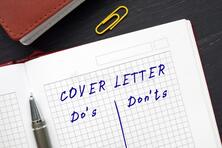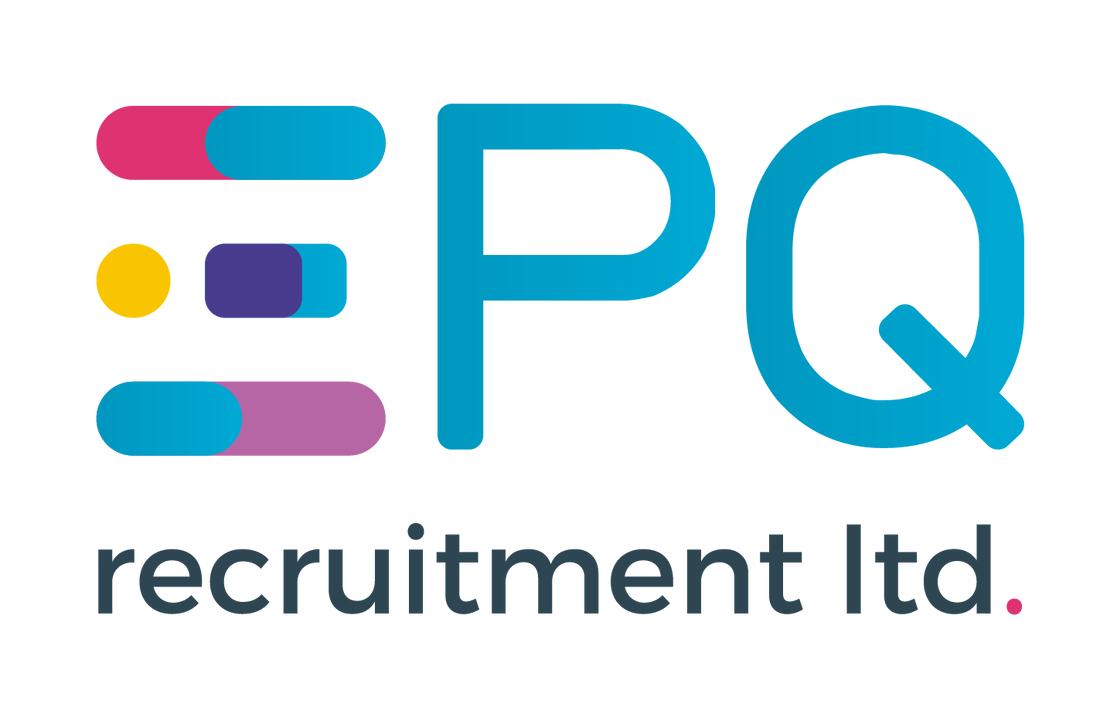|
EPQ’s Interview Etiquette 101 - After the Interview Phew! Your interview is done, you gave your best shot and you’re looking forward to feedback. While this is time to relax and reflect, there are also steps to take after an interview to make sure you’re leaving a lasting impression: 1. Send a thank you note It’s always a good idea to send a follow-up email, thanking the recruiter for their time. Here is our super simple formula to a memorable thank you note: “Dear (Name of Recipient), Thank the interviewer for the opportunity to interview. Share what you enjoyed learning about and/ or discussing during the interview. Relay the highlights of why your experience and skills make you a strong candidate for this role. Reassure your interest in the organisation. Thank the interviewer again. Express your interest in hearing from them. Sincerely, (Your name) 2. Follow up If you don’t hear from the employer (in the specific time frame mentioned) you must follow up, professionally and only once. Call or email the employer/human resources representative and politely enquire about when you’ll know the outcome. It’s important that you only do this once, as it can become tedious and disadvantageous. 3. Evaluate your performance Although we hope that this will be your last interview for a while, it’s good practise to go over any questions that stumped you, so you can be better prepared for the future. 4. Prepare yourself You must prepare yourself for any outcome. If you receive the job, you must prepare a response and decide whether to take the position. And if you don’t receive an offer, you must prepare to ask for feedback and to not get disheartened. Keep in mind, most companies will not provide feedback, so receiving it is a luxury and something to build on. In essence, you must plan your reactions to both the outcomes you may receive. 5. Second Interview/Next Round In some cases, there may be a number of rounds to complete before securing a position. So use this time to prepare for the next step of the recruitment process. If stated, remind yourself of the requirements of the next stage. It may be that it’s another interview with another member of staff, in that case, refer back to all stages of the interview etiquette: EPQ’s Interview Etiquette 101 - Preparation EPQ’s Interview Etiquette 101 - The day of EPQ’s Interview Etiquette 101- During your Interview
0 Comments
EPQ’s Interview Etiquette 101 - The night before and the day of!
If you’ve read our Interview Preparation blog post, you’re familiar with the fundamental ongoing imperatives to ready yourself for an interview - Role playing scenarios, researching the company etc. that enable you to walk into the interview feeling confident and ready to bring the best version of yourself. In this segment, we’ll be touching on what to do the night before, the day of, and essentially the final hours before your interview: The Night Before Whilst the feeling of nerves may or may not have kicked in yet, in order to prepare for your interview you must get organised the night beforehand. But don’t panic, we’ve created a check list to ensure you’re good to go: 1. Read through your notes, CV, cover letter, job responsibilities, company and industry summaries (everything we taught you in our Interview Preparation post) one last time. 2. Outfit plan. There is nothing worse than waking up in the morning and fussing over an outfit you can’t find, so make sure your clothes are planned and laid out the night before. This is also great opportunity to check for stains, creasing, scuffs on your shoes and ensure you’re dressed in a professional manner (Even if your interview is via zoom or online, it’s still important to look presentable!) 3. Plan your Journey. To ensure no hiccups, map out your route, make sure you’re aware of the location, bargain in how much travel time you will need, then add additional time (we recommend 20 minutes) incase of delays in traffic. Traffic is almost always guaranteed so it’s important to think ahead and not rush, as well, if you walk in late and/or flustered, it could affect the impression you have on your employer. If your meeting is online or via zoom you, of course, won’t need to plan a journey. But, you will need to find a quiet, well-lit space, as well as to check access to links before you click to join. 4. Pack your bag. If you’re having an in-person interview at an establishment, you will need to pack a few essentials in your bag. We recommend popping in a copy of your CV, a notepad and pen, and, in some cases, a form of ID and a note of your references. We also suggest re-reading your invitation to interview and see if the employer has requested you bring anything additional. 5. Get a good nights sleep. A slight cliche and a big ask for some, however extremely important. Make sure you’re in bed at a reasonable hour and up in there morning with plenty of time to spare. The Day of It’s more likely the nerves have kicked in now, but the best is yet to come! You’ve packed your bag, re-read your documents and now you’re ready for the occasion. Heres some tips to smash the penultimate build-up for your interview:
Are you ready for more in your current/another role? Are you performing high and want to be recognised, or simply unsure if you are promotion worthy? We’ve all been there, and it can be difficult to determine when’s the right time to plead your case to a promotion.
Being professional recruiters, we’ve summed up the 5 signs it (may!) be time to ask your employer when you’ll be able to climb the ladder to a higher title... 1. You’re consistently producing impactful results If you’re consistent in curating a positive impact to your company, it may be time to propose that step up! You could be exceeding targets, thinking strategically about the bigger picture, making process improvements, or providing solutions to problems, whatever it is, it’s having a good impact! In a nutshell, if you’re responsible for a number of constructive enforcements, consistently, then it may be time to shoot your shot. 2. You’ve mastered your current role We’ve all heard of the phrase “I can do it in my sleep”, well, this may be you when it comes to your job responsibilities. You might have reached the point where all tasks are significantly easy, therefore you have capacity to take on more jobs. But be careful with this, as the outcome could become more work without the added recognition! 3. You’re the go-to person in the team Although it may feel good to be the right-hand man in the workplace, and have your manager delegate more responsibility to you, it could be a sign you’re due an increase in benefits. For example, your colleagues are coming to you for advice/help, but are essentially on the same level as you, may prove that you’re due a higher title. 4. You’re performing at the next level There is such thing as out-performing, especially when you’re in the same salary bracket and role as some of your colleagues who aren’t. If you can confidently say you’re producing senior level work, then you know what to do! 5. You’re influential When you’re known, respected and trusted by your stakeholders and have interpersonal skills to influence people, you could be in for a shot of being promoted. This means your opinion adds value and has been proven trustworthy, and the company would benefit having your voice in a higher role. This can also include your relationships with colleagues and/or clients and if their testimonials of you are positive! If you can confidently match yourself to these points, as well as feel ready to take on bigger responsibilities, then you’re well away! Don’t be shy to put yourself forward to your employer. Oh.. and don’t forget us when you’re CEO! How to answer “Tell me about yourself” in an interview - from a professional recruiter
When you’ve followed EPQ’s CV and Cover letter advice, it’s likely you’ve gotten yourself through the interview stage of the recruitment process. AKA the next hurdle, that is arguably the most nerve-wracking. It’s no secret that interviews are a daunting process, and although the ‘in-person’ aspect is, in most cases, long gone, that doesn’t change the formatting of the inevitable questions. Research states that the most painful question of them all, worldwide, is actually one of the most simple at face value... “So.. tell me about yourself” It might seem like an easy win—after all, you know all about yourself, you’re you! But, responding to this invitation to talk about you in the context of a job interview can feel stressful and complicated. “It’s challenging because it is broad, open-ended,” Theresa Merrill, famous career coach, points out. You might be thinking: Um, what do you want to find out? Shall I start from birth and go from there? Well, no. The interviewer doesn’t need to know that you were breach and didn’t say your first words until you were 2 and a half. They don’t need to know what street you grew up on or the name of your first pet. But, they do need to know you’re what you’re up to at current (job wise), your experience and your plans for the future. We’ve mapped out an easy recipe to tackling the inevitable interview question:
Of course, this isn’t the ‘be all or end all’ response the this question, and you can tweak as you see fit. Although, we recommend you begin your answer with the phrase “I’ve always been the type of person that..” For example: “I’ve always been the type of person that shines in making a customer journey exceptionable. For example at current my role is front of house manager...” This will not only mention your current role, but also give the recruiter an idea of your character. To end, it’s recommended to link back to the job, “so that’s why I’m here, because I know my passion for customer service can be successfully shown and executed” This structure shall coherently mention your experience, character and intentions, and it shall be clear to the recruiter what steps you’ve taken to be with them today! Curating a perfect, converting answer that’ll be sure to make you memorable. f you’re read our why your CV isn’t getting viewed post, you’ll know that your CV’s partner in crime, and penultimate BFF is a covering letter. They work together to reach out to a recruiter and show them what you’re made of. By dictionary definition, a cover letter is a document sent with, and explaining the contents of, another document or a parcel of goods. In our case, a job cover letter is paired with your CV and acts as an introductory to it.
It’s important to note that a cover letter is a supplement to your CV, not a replacement. Meaning, you don’t just repeat whatever has been mentioned. It can be overwhelming to format the letter if you’re not a natural writer (we learnt this the hard way!) but we think we’ve now nailed the recipe… Without further ado, our tried and tested format to craft the perfect cover letter: 1. Header - Input contact information 2. Greeting the recruiter/hiring manager 3. Opening paragraph - Grab the reader’s attention with 2-3 of your top achievements 4. Second paragraph - Explain why you’re the perfect candidate for the job 5. Third paragraph - Explain why you’re a good match for the company 6. Formal closing It’s as simple as that! And, of course, make sure the document is easily read, in the format of a letter and paired with a simple colour scheme, and you’re good to go! Why your CV isn’t getting you an interview, from a professional recruiter.
If you’ve ever applied for a job in your lifetime, you will most likely have a CV, a standard A4 document listing your work history and essentially selling yourself to a recruiter. And although the creation of a CV sounds simple, yours COULD be putting off recruiters with it’s literacy, formatting, over-exaggerating and lack of updating. But don’t worry, you’ve landed in the right place. Here is 5 reasons your CV isn’t bringing in the interviews, from a professional recruiter.. You have spelling mistakes Your CV may not be converting due to something extremely obvious, like pesky, little spelling mistakes. In a world of spell-check, there really isn’t an excuse for having typos, especially in a professional document such as a CV. The last thing a recruiter wants to spot is a document filled with blatant, lazy mishaps in literacy. That’s why having someone to give a good old-fashioned proof read shall never be a bad idea! You haven’t written a covering note Your recruiter may have a huge pile of CV’s, much like yours, waiting to be seen. In order to stand out and get your CV read, a certain foundation must be laid before hand. Writing a covering letter act as a nice introductory to your recruiter, which will incise to want to know more, and essentially read your CV. A lot of candidates forget this step, and this could be a factor into why recruiters or recruitment agencies aren’t picking up! Irrelevant job history So you’ve written a decent introductory cover note, and the recruiter has picked up your CV. Great! Unless of course it is filled with irrelevant job history and achievements, then they’ve switched off at the first skim… A common misconception of CV format is that you should create a large list of every single inch of employment history, but this just isn’t true. For example, if you’re applying to a HR firm to be a diligence consultant, the employer simply does not need to know about your babysitting gig between GSCES at 16, or your part-time barista experience at 17. Of course, if this is the entirety of your job history, not much else can be listed. However, if you’re 35 and have had 2 HR jobs prior, perhaps miss out the previous teenage career choices! You’re formatting is.. well.. ‘off’ From experience, candidates go either one of three ways with regards to formatting their CV, 2 of which ‘aren’t ideal’ and one that is preferred. They will either pull up a word document, type free-style and leave nothing inline or formatted to be easily read (a huge put off for recruiters!) Or go completely crazy with photos, colours and maximalist design (another big no-go!). Both of these extreme formatting styles shall limited the conversion of your CV, therefore if you fit either description, it may be time for a switch up of formatting. Meet somewhere in the middle and create a simple, clear, inline text document and avoid photos and luminous colours. You’re exaggerating, and it’s obvious! Recruiters have been trained to specifically sniff out any ‘slight exaggerations’ from your resume, believe me! So your little white lies could be the reason your CV isn’t sailing into the interview stage. Whether you’re slightly over-selling your responsibilities or completely plucking a job title from thin air, remember that honesty is always the best policy! |
AuthorHi, we're the EPQ Recruitment team and we'll be keeping you up to date with all the latest news! Archives
April 2023
Categories |






 RSS Feed
RSS Feed

